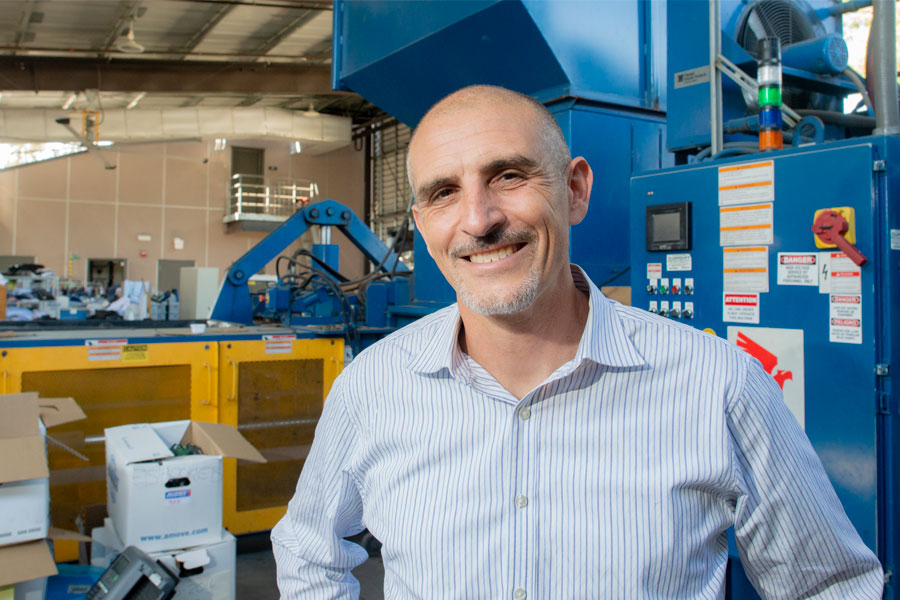CSUN’s Institute for Sustainability Welcomes New Director

Natale Zappia is happy to apply his knowledge as an environmental historian in his new position as director of CSUN’s Institute for Sustainability. Photo by Christopher Castaneda.
Environmental historian Natale Zappia, who also will teach courses in CSUN’s Department of History, is the newly appointed director of the university’s Institute for Sustainability.
Prior to assuming his role in August as institute director, Zappia served as the Nadine Austin Wood Chair of American History at Whittier College, where he also co-directed the Integrated Arts and Humanities Program and the Sustainable Urban Farm Lab. An environmental historian uses the environment as an archive to study the codependent relationship between nature and humanity.
Zappia made the move to CSUN because he was thoroughly impressed with the university’s sustainability efforts on campus, he said.
“The institute is incredible. Compared to other campuses, we are light-years ahead,” Zappia said. “I want to maintain that and continue the momentum.”
CSUN has earned several top rankings from the nation’s largest organizations for sustainability in higher education. In September, the Association for the Advancement of Sustainability in Higher Education (AASHE) ranked CSUN No. 5 among all master’s degree-level institutions in its Sustainable Campus Index. CSUN scores highly for water conservation, peer-to-peer education and student ambassadors through Associated Students Recycling.
Some of the biggest accomplishments over the past several years include opening the CSU’s first Sustainability Center on campus, creating and implementing a campus-wide Zero Waste Plan and reducing water consumption on campus by more than 55 million gallons per year.
Other unique features and services include the CSUN food garden, which is dedicated to teaching students about sustainable food gardening techniques and healthy food options while promoting direct community involvement.
Zappia said his goals as director in his first year or two include involving more faculty in sustainability practices and education across all departments. He also envisions an innovative future for the institute, where faculty members introduce outdoor classrooms and lab spaces to kickstart research projects.

 experience
experience